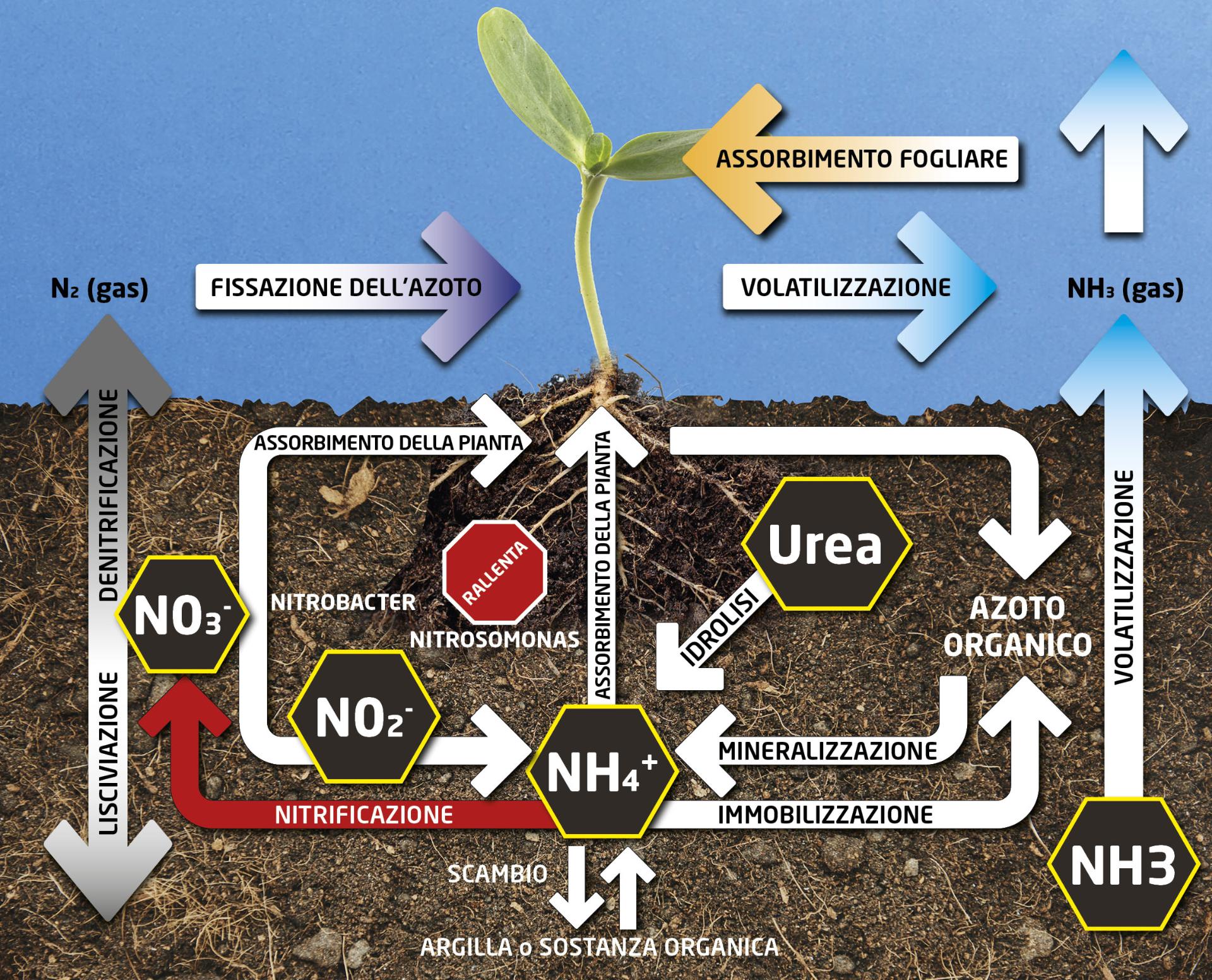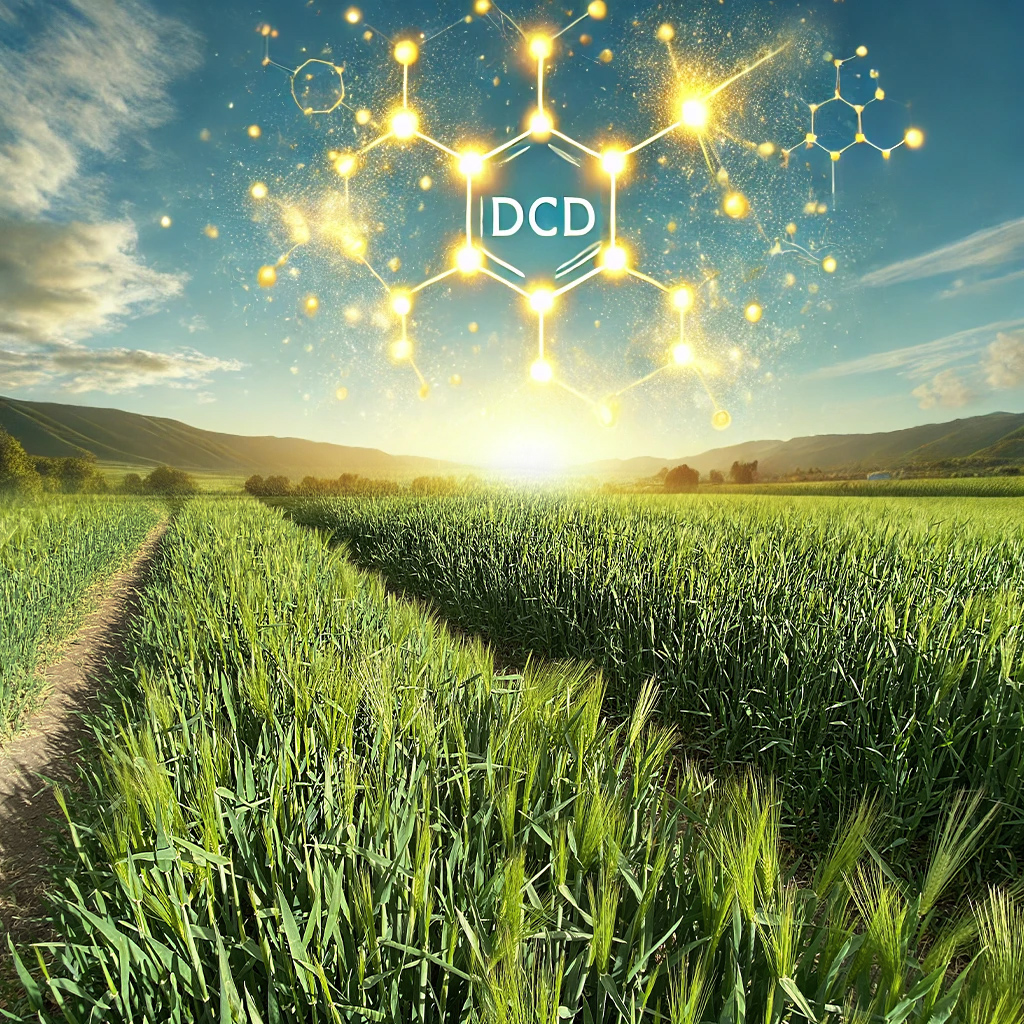
Nitrogen fertilization: innovation and sustainability with the N-GOOO Line

Nitrogen is the driving force behind crop growth, but managing it effectively remains a critical challenge. Due to its highly dynamic nature, nitrogen is prone to losses that not only affect farmers economically but also have serious environmental repercussions. Nitrate leaching contaminates groundwater, while nitrogen gas emissions contribute to global warming. In light of these issues, nitrogen fertilization efficiency is emerging as a cornerstone of sustainable agriculture.
The Challenges of Nitrogen: Why Is It So Difficult to Manage?
Ammonia volatilization, denitrification, and leaching significantly reduce the amount of nitrogen available to plants. These losses are exacerbated by adverse weather conditions, such as heavy rainfall or excessive irrigation, leading to nitrogen losses of up to 50% in sandy soils.
Research shows that:
- Volatilization: Can result in losses of up to 30% of applied nitrogen.
- Leaching: In lighter soils, losses can exceed 50%.
- Denitrification: In compact, heavy soils, this accounts for up to 15% of total nitrogen losses.
The need for innovative technologies to mitigate these phenomena has never been more pressing—especially to ensure sustainability and productivity in an increasingly environmentally conscious agricultural sector.

The Solution: DCD Technology in the N-GOOO Line
The N-GOOO line offers a revolutionary approach to nitrogen fertilization through the use of a nitrification inhibitor based on Dicyandiamide (DCD)—N-GOOO NITROSTOP, certified under ANNEX 1 of EU Regulation 2019/1009 by STICHTING EFCI Register – Rotterdam.
This technology slows the conversion of ammoniacal nitrogen (NH₄⁺) into nitrates (NO₃⁻), delivering remarkable benefits:
- Extended Nitrogen Availability: Synchronizes nitrogen release with crop demand.
- Reduced Nitrogen Losses: Minimizes leaching and volatilization.
- Improved Nitrogen Use Efficiency (NUE): Maximizes the benefits from each unit of applied fertilizer.
DCD works by inhibiting Nitrosomonas bacteria, slowing down nitrogen transformation in the soil. This not only prolongs nitrogen availability but also reduces the formation of nitrous oxide (N₂O)—a highly potent greenhouse gas.
Scientific Results: Targeted Agronomic Management
Trials conducted in collaboration with the University of Milan and ERSA (Regional Agency for Rural Development) demonstrated the outstanding performance of the N-GOOO line across different soil types:
- Loamy soils: Nitrate levels remain stable for up to 60 days, with extended stability up to 150 days.
- Sandy soils: Nitrate levels remain stable for 2 weeks, gradually increasing until 30 days and stabilizing around 60 days.
These results highlight the importance of site-specific agronomic strategies, optimizing the potential of DCD technology in N-GOOO NITROSTOP according to soil characteristics.
Supporting Sustainable Agriculture Policies
The N-GOOO line fully aligns with policies introduced in various European countries that provide incentives to farmers for the sustainable use of nutrients. In Italy as well, regional Rural Development Programs (RDPs) offer per-hectare subsidies to beneficiaries committed to adopting sustainable fertilizer management practices, such as the use of stabilized nitrogen fertilizers.
Innovation for a Sustainable Future
The N-GOOO line marks a turning point in nitrogen fertilization, combining efficiency with sustainability. Thanks to its advanced technology and proven results, it provides farmers with a modern solution that meets both productivity and environmental protection goals.
This is the future of agriculture: precision, innovation, and respect for the planet.
With the N-GOOO line, efficiency has never been so sustainable.
With the N-GOOO line, efficiency has never been so sustainable.







